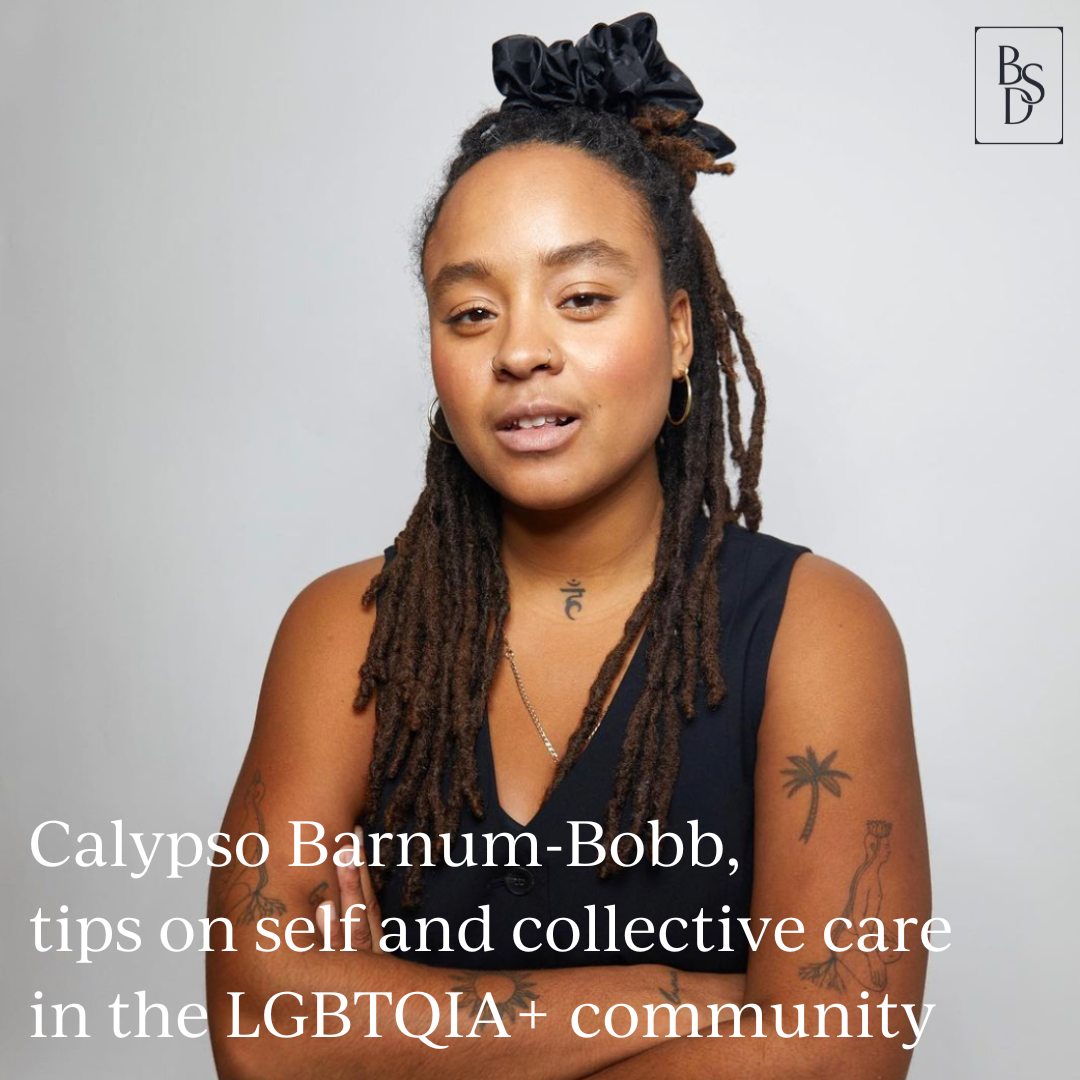Calypso Barnum-Bobb on self and collective care in the LGBTQIA+ community
Calypso Barnum-Bobb is not only a certified self-discovery coach, speaker, podcast host and co-founder of People Like Us retreats, who along with her partner Natalia Spano host LGBTQIA+ friendly wellness retreats.
She is also someone who you wish you could have on speed-dial for heart-filled pep talks and the ability to show you parts of yourself that you have longed to re-discover and share with the world.
Given that a YouGov survey reported that 51% of the LGBTQIA+ community in the UK said they experienced or were diagnosed with a mental health condition, compared to 32% of the general population. As well as, according to Stonewall, 51% of Black, Asian and racialised people in the community having experienced discrimination or poor treatment from others in their local LGBT community because of their ethnicity; conversations around wellbeing are vital.
Wellness spaces have work to do, and plenty of it. It’s not often that you can walk into a retreat, class or even pick up a self-help book and feel a sense of belonging; if your identity falls outside of who the wellbeing industry often pedestals and spotlights. So, having an awareness of creating your own practices and joining like-minded communities is where it’s at, as well as looking for other resources and support from professionals as and when you need it.
It’s one thing to identify as part of the LGBTQIA+ community and it’s another thing to do so whilst being the Black. There are pockets of the Black community, sometimes even within family units, that are wholly unsupportive of the LGBTQIA+ identity, often creating stress and deep unhappiness. Fortifying your mind and spirit is key to living a happy and true life.
As someone in the space who lives and breathes authenticity and integrity, we sat down with Calypso to talk about community, re-defining self-care and finding your people.
While the term has been co-opted and commodified, what does self-care mean for you and how important is it in your life?
Self-care to me has meant tapping out of the patriarchal, capitalist pace of existence and cultivating a life and business that allows me to actually take care of my essential needs. It’s not the candle that I light when I have the bath, it’s the boundaries that I enforce that allow me to take that bath at 3pm on a Wednesday afternoon. Before I burnt out 3 years ago, self-care was a nice to have, like the little gold star my teachers gave me as a kid when I got my spellings right. But, now I’ve tasted the good stuff (aka moved through the world with a regulated nervous system) it’s a non-negotiable.
The wellness industry can lack inclusion in many ways with significant barriers to entry that don't always make many spaces feel "safe", what role does collective care play for queer people?
Collective care is essential and has always been a part of healing in indigenous groups and cultures. The West has done an incredible job at convincing us that we should heal in private. That’s amplified even more when you’re a queer human, often carrying a lot of shame. We started People Like Us because we were craving deep connections with like-minded queer humans. We need to see ourselves reflected back at us to feel a sense of belonging and hear other people’s truths to know that we’re not alone, and communities like People Like Us create beautiful, safe spaces for that to happen. It’s literally the best.
Do you have any wellbeing and care tips from your own experience that you'd like to pass on?
Start protecting your time on this Earth as if it’s your most precious possession. Those extra hours you spend doing things that don’t serve you, the minutes you trade with humans that deplete your energy, the split second that you say yes to things that don’t light you up or no to things that you’ll remember on your death bed. Take care of your time and you’ll take care of yourself as a by-product.
Find your people. Those who mirror back your brilliance and make you feel safe and celebrated as you are, now. Stop trying to do it all by yourself. There are people that want to hug and hold you through it all- go seek them out!
Slow it down. Right down. All of it.
If you’re looking for further support, Mind have compiled a list of LGBTQIA+ mental health resources here.

